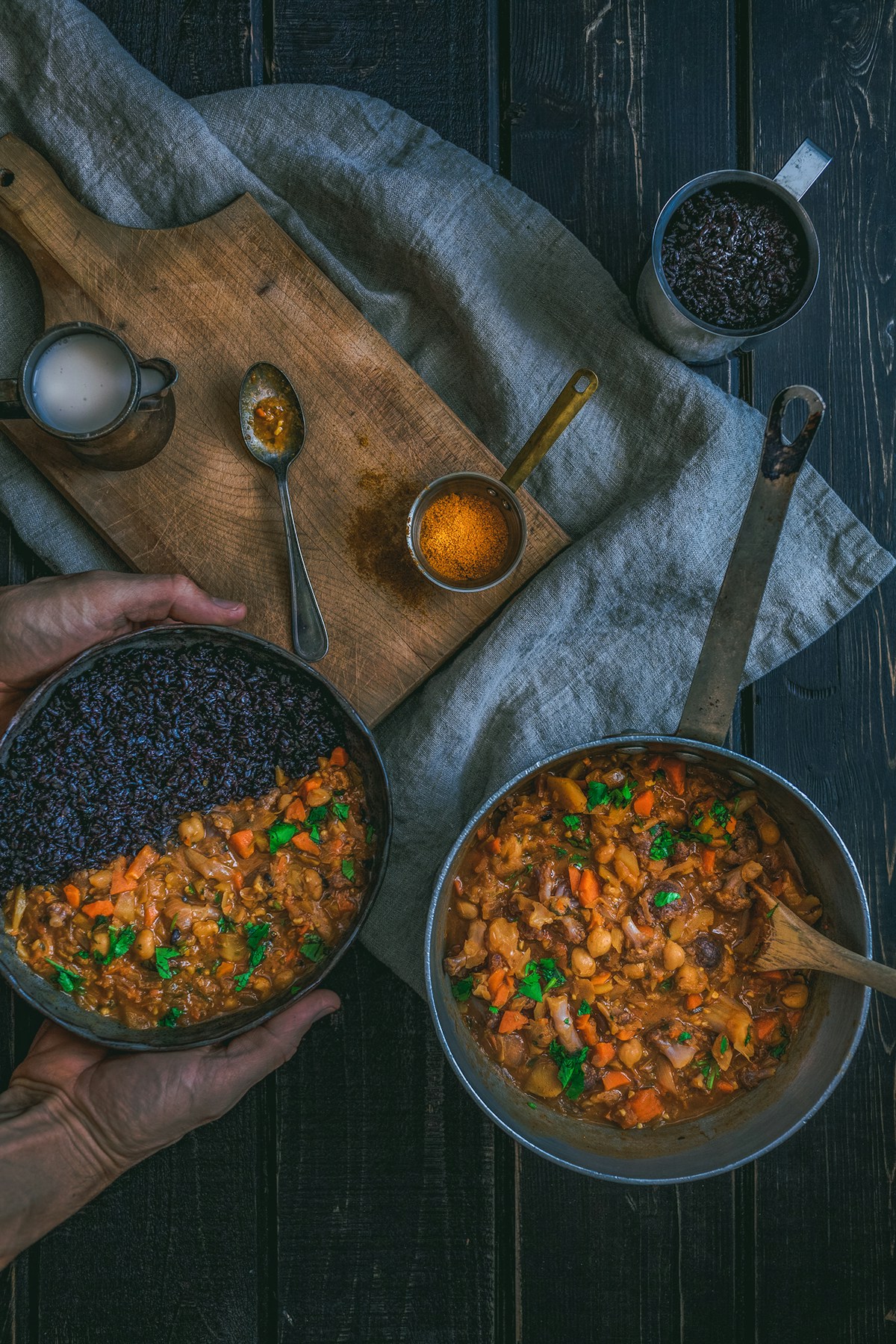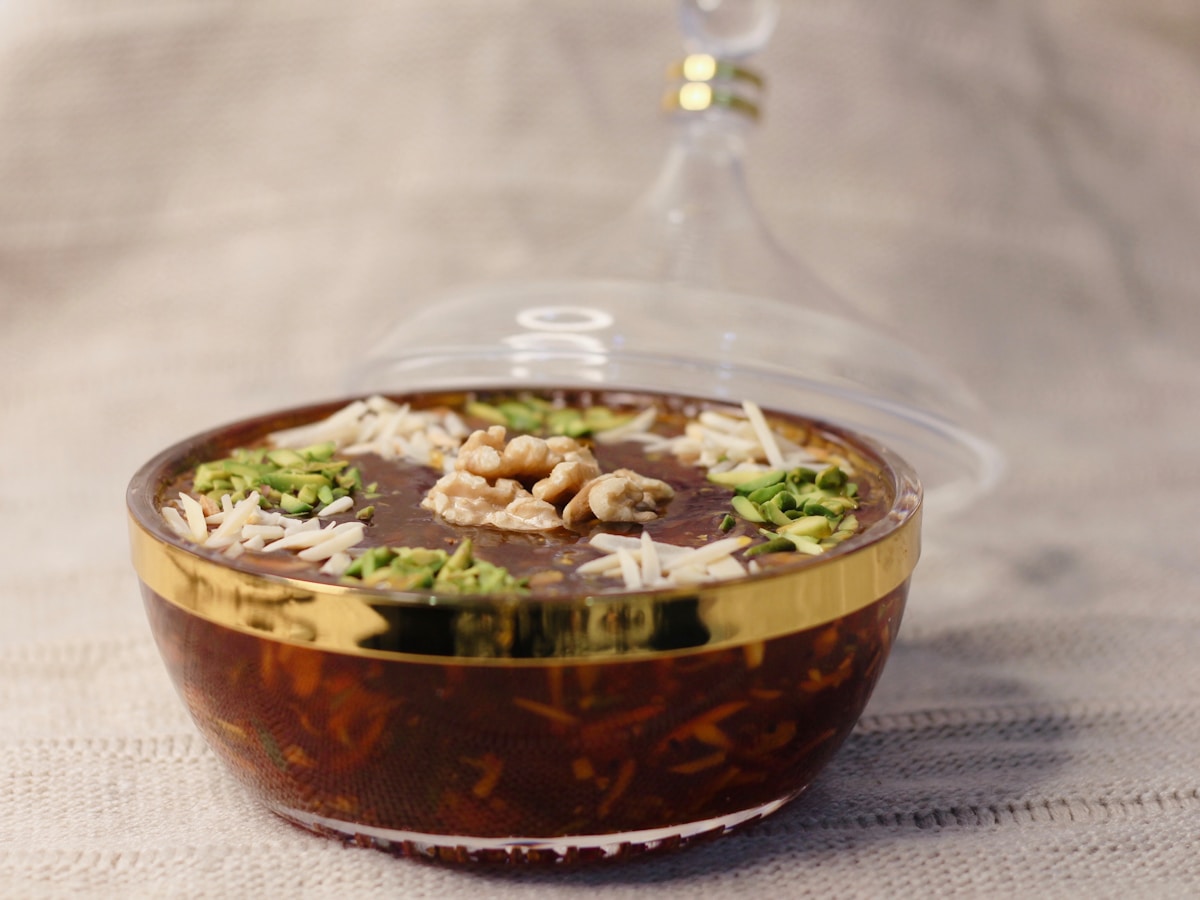Written by: Dr. Julianna Englund, ND, LAc
Cold and darkness predominate Winter. Our human bodies follow suit. To best keep our bodies in balance, we can eat with the season. According to Chinese medical theory, the kidneys are the organs most affected during the winter months. Here are 7 tips to help you eat seasonally and nourish your whole body, especially your kidneys.
1. It is essential that we eat warm foods that are cooked thoroughly in order to provide ease for digestion and absorption. Warm foods counter the cold temperatures outside and keep our bodies warm. They are easy on our digestion thereby conserving our vital energy. Cook foods longer and at lower temperatures, allowing their nutrients to be easily broken down and assimilated.

2. Eat plenty of stews and soups. Hearty foods like stews with bone broth, grass-fed beef, lamb, beans and dark leafy greens are so comforting to your body-mind-soul now.

3. Black is the color that corresponds to Winter and the kidneys. Consume black foods, like black beans, black sesame seeds or kidney beans to nurture your Being.

4. Eat slowly. Winter is the time to take everything slowly, including eating. This is the time to conserve our energy and to enjoy the nourishment of the Present. When we eat mindfully and slowly, it allows the parasympathetic nervous system to lead the way and our digestive system responds optimally.

5. Curb your sugar intake. Eating even moderate amounts of processed sugar causes “dampness," says Chinese medicine, and slows/impedes digestion. It also weighs the body’s energy down, acting like sludge. Give your body and energy the chance to repair during these healing winter months and feed yourself with these other suggestions.

Image credit: brazzo
6. Naturally salty flavors nourish the kidneys and the body during this time. Include salty foods like miso, seaweeds, low-sodium soy sauce/tamari, sea salt, barley or millet ((Pitchford 354-355). Furthermore, small amounts of bitter foods in our meals balances the energy of the season. Some examples of Winter foods that have bitter components include lettuce, escarole, turnip, celery, asparagus, watercress, endive, rye, quinoa, amaranth and oats (Pitchford 354-355). These bitter foods also help with our digestion.
*Note: While salty is the flavor that corresponds to the kidneys in Chinese Medical theory, you should include table salt and foods containing sodium with care. Too much salt is hard on the kidneys and increases blood pressure. If you have high blood pressure, limit your salt/sodium intake to less than 4-5 grams of sodium per day (1 tsp salt = 2.3 grams of sodium).
1. Pitchford, Paul, Healing With Whole Foods: Asian Traditions and Modern Nutrition. Berkeley, Calif.: North Atlantic Books, 2002.

7. Drink warm beverages. Ice-cold beverages bring the cold temperatures inside a body that is already working hard to stay warm. This damages the energy. Try to include warm drinks to nourish your whole system. Drink teas that nurture your health, especially teas with a bitter component. One of my favorite wintertime teas is the rich and moderately bitter, roasted chicory tea.

Image credit: Eugene03
Was this blog helpful for you? Would this blog be helpful for anyone you know? Feel free to Click below and Share...